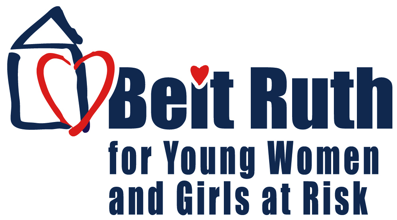Our Mission
Beit Ruth for Young Women & Girls at Risk is an innovative, long-term residential and therapeutic youth village and school with a mission to ensure that vulnerable and at-risk girls are given the opportunity to thrive emotionally, socially, and academically, thereby breaking the cycle of violence for themselves and future generations of children in Israel. Through advocacy, we share our best practices and model program to educate, empower, and engage a global community to create social change.
What We Do
Beit Ruth cares for abused and at-risk girls, aged 13-18 years old, who have been found living on the streets or removed from their homes by court order as a result of physical, emotional, and primarily, sexual abuse. They are placed in our care for up to six years. The Village operates 24 hours a day, 365 days per year.
The girls at Beit Ruth come from all over Israel, from different family backgrounds, and represent the religious, cultural, and ethnic landscape of the country. What they have in common is that each one experienced a traumatic past, and lives in a broken present.
Our Model
We provide a safe, structured, and loving home environment, and the academic and therapeutic resources needed to equip each girl with the necessary life, education, and social and emotional skills to enable her to become self-sustaining, empowered, responsible, and contributing members of Israeli society.
Beit Ruth Alumnae go on to hold meaningful positions in the IDF; complete a year of National Service; continue their education; find gainful employment; and develop healthy relationships, marriages, and families.
More than 30,000 girls ages 12 to 18 are considered at risk in Israel. Yes, Israel. Lost to the streets, forgotten, discarded, abused.
Why Beit Ruth
Few state-run facilities have the means to provide effective, therapeutic, and educational programs tailored to the individual needs of at-risk girls. Additionally, most organizations caring for at-risk youth in Israel do not distinguish between the needs and complexities of girls and boys which is far less effective than gender-sensitive programming.


